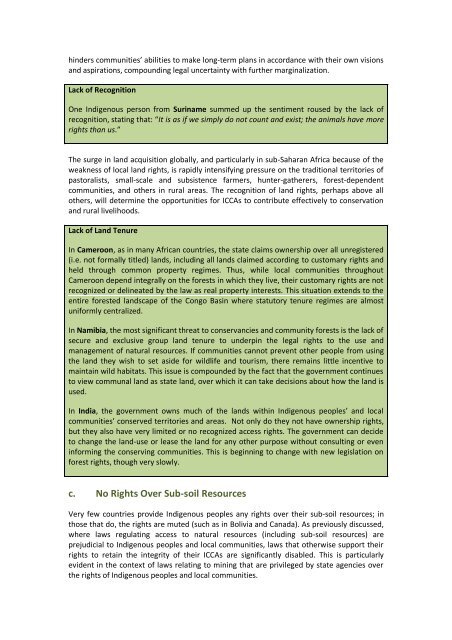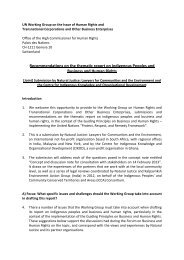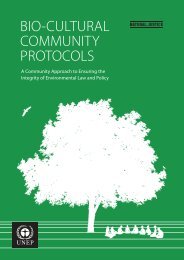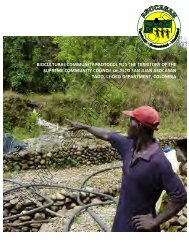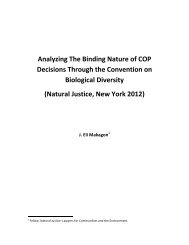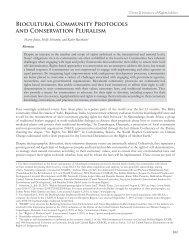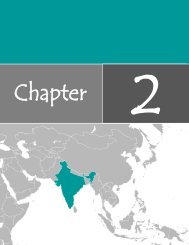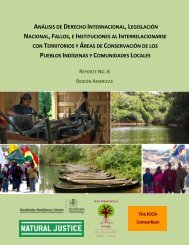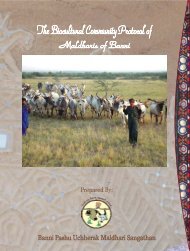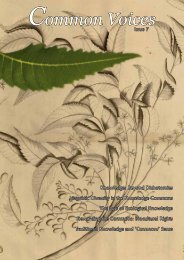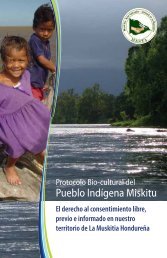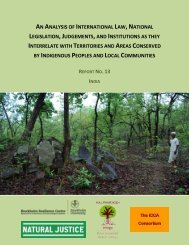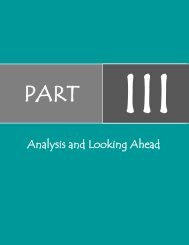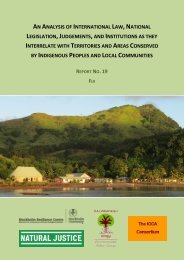English - Natural Justice
English - Natural Justice
English - Natural Justice
Create successful ePaper yourself
Turn your PDF publications into a flip-book with our unique Google optimized e-Paper software.
hinders communities’ abilities to make long-term plans in accordance with their own visionsand aspirations, compounding legal uncertainty with further marginalization.Lack of RecognitionOne Indigenous person from Suriname summed up the sentiment roused by the lack ofrecognition, stating that: “It is as if we simply do not count and exist; the animals have morerights than us.”The surge in land acquisition globally, and particularly in sub-Saharan Africa because of theweakness of local land rights, is rapidly intensifying pressure on the traditional territories ofpastoralists, small-scale and subsistence farmers, hunter-gatherers, forest-dependentcommunities, and others in rural areas. The recognition of land rights, perhaps above allothers, will determine the opportunities for ICCAs to contribute effectively to conservationand rural livelihoods.Lack of Land TenureIn Cameroon, as in many African countries, the state claims ownership over all unregistered(i.e. not formally titled) lands, including all lands claimed according to customary rights andheld through common property regimes. Thus, while local communities throughoutCameroon depend integrally on the forests in which they live, their customary rights are notrecognized or delineated by the law as real property interests. This situation extends to theentire forested landscape of the Congo Basin where statutory tenure regimes are almostuniformly centralized.In Namibia, the most significant threat to conservancies and community forests is the lack ofsecure and exclusive group land tenure to underpin the legal rights to the use andmanagement of natural resources. If communities cannot prevent other people from usingthe land they wish to set aside for wildlife and tourism, there remains little incentive tomaintain wild habitats. This issue is compounded by the fact that the government continuesto view communal land as state land, over which it can take decisions about how the land isused.In India, the government owns much of the lands within Indigenous peoples’ and localcommunities’ conserved territories and areas. Not only do they not have ownership rights,but they also have very limited or no recognized access rights. The government can decideto change the land-use or lease the land for any other purpose without consulting or eveninforming the conserving communities. This is beginning to change with new legislation onforest rights, though very slowly.c. No Rights Over Sub-soil ResourcesVery few countries provide Indigenous peoples any rights over their sub-soil resources; inthose that do, the rights are muted (such as in Bolivia and Canada). As previously discussed,where laws regulating access to natural resources (including sub-soil resources) areprejudicial to Indigenous peoples and local communities, laws that otherwise support theirrights to retain the integrity of their ICCAs are significantly disabled. This is particularlyevident in the context of laws relating to mining that are privileged by state agencies overthe rights of Indigenous peoples and local communities.


